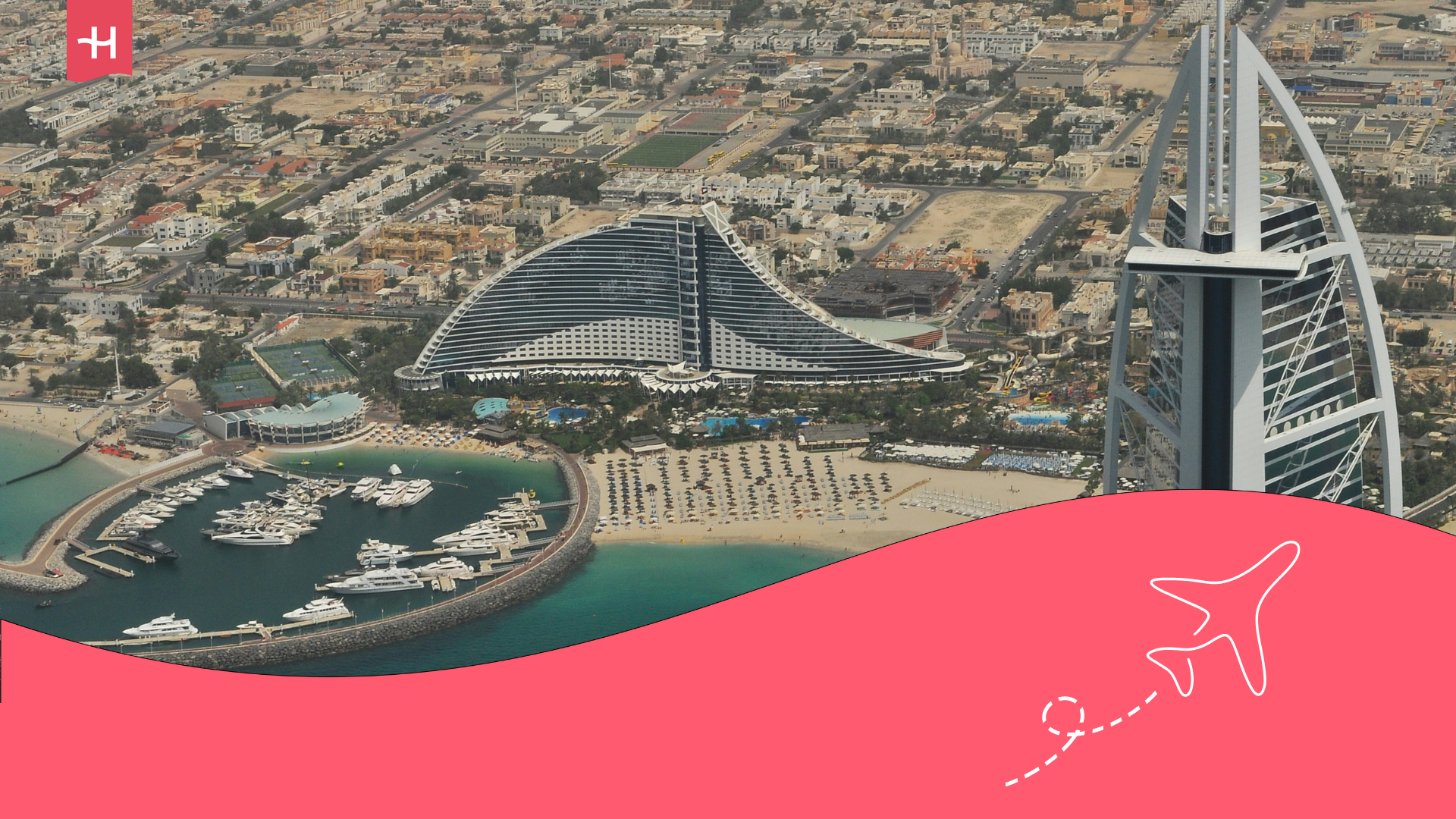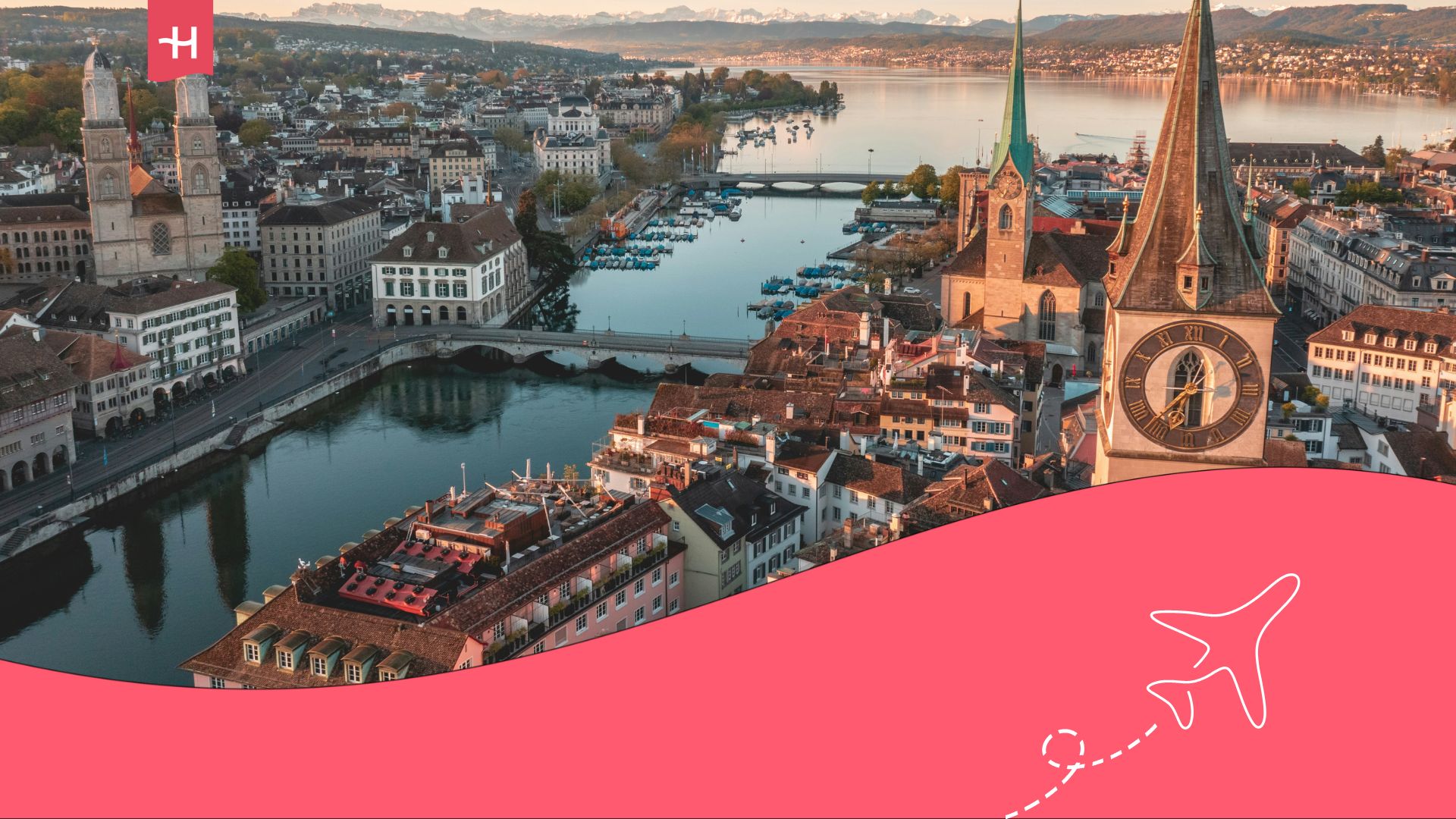How to work in Poland: Opportunities and requirements
In this guide, you will find valuable and necessary information to learn everything you need to know about work in Poland in 2025.
For professionals looking for a stable economy with plenty of growth opportunities, Poland has become an increasingly attractive destination. Looking to work in Poland in 2025? Here’s a guide to the opportunities ahead.
Being part of the European Union, Poland is an attractive choice for professionals seeking a multicultural environment with a strong presence of startups and international companies. The cost of living is lower than in countries like Germany, the Netherlands, or France, making it a smart option for those looking to make the most of their budget. This guide will also explore the advantages of choosing Poland for your future career opportunities.
Advantages of working in Poland
Poland, with its rich history and vibrant cities like Warsaw, Krakow, and Wroclaw, offers highly attractive work and social benefits for professionals across various fields. Some of the key advantages include:
- Sustained economic growth: Poland’s economy is one of the most stable in the European Union, with sectors like technology, manufacturing, finance, and services experiencing steady growth.
- International job market: More and more global companies are setting up operations in Polish cities, creating strong demand for international talent, especially in fields like IT, customer service, and finance.
- Affordable cost of living: Unlike many other European countries, living in Poland is more affordable when it comes to housing, food, and transportation, allowing for a better balance between income and expenses.
- Opportunities for young professionals: Poland has become a hub for international students and recent graduates looking to gain their first work experience in Europe.
- Quality of life and safety: Poland’s major cities offer a great mix of modern infrastructure, efficient public transportation, rich cultural opportunities, and a safe environment for living and working.
- Growing international community: The number of foreigners living in Poland grows every year, creating more opportunities for professional networking and integration.
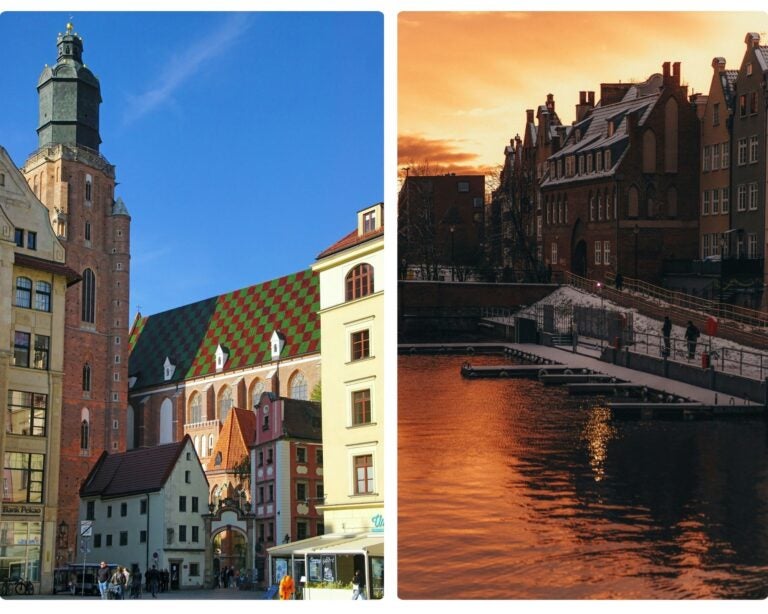
Requirements for working in Poland
Before moving to Poland for work, it’s important to understand the procedures and requirements you’ll need to meet as a foreigner. Here are the key requirements:
- Visas and work permits:
- Citizens of the EU can work in Poland without needing a visa or additional permit.
- Non-EU citizens need to apply for a work permit and either a national D-type visa or a temporary residence permit, depending on the length and type of employment.
- Previous job offer: Usually, you need to have a confirmed job offer before the company can take care of the work permit process with the Polish authorities.
- Language skills: Polish is the official language and may be required for some positions, but in many international companies, having intermediate or advanced English is often more important.
- Required documentation: A valid passport, a job contract, health insurance that’s valid in Poland, and proof of sufficient funds for your initial stay.
- Accreditation of qualifications: In regulated professions such as medicine, law, or education, you must have your academic qualifications recognized in order to practice legally.
- Compliance with local regulations: Anyone working in Poland needs to register with the local immigration office, obtain a tax identification number (NIP), and in some cases, a PESEL number (national population register).
Tips for starting work in Poland
Starting out in a new country always comes with challenges. If you’re considering moving to Poland for work, these tips can help you settle in faster and make the most of your experience.
- Learn the basics of Polish: Even though many international companies operate in English, knowing some basic Polish phrases can make daily tasks, transportation, and everyday life much easier.
- Arrive with internet access secured: During your first few months in Poland, staying connected is essential for finding a place to live, keeping in touch with your employer, and getting around the city. Holafly’s monthly plans are a convenient option, offering unlimited data from the moment you arrive without a physical SIM.
- Find out about your employment contract: Make sure to review your contract carefully before signing, checking that it clearly outlines your salary, benefits, vacation days, and working hours.
- Open a local bank account: Having an account at a Polish bank will make it easier for you to receive your salary, pay for services, and avoid international fees.
- Register with the authorities: If you plan to stay in Poland for an extended period, be sure to get your tax identification number (NIP) and, in some cases, a PESEL number, both of which are required to work legally.
- Explore housing options near your workplace: Public transportation in cities like Warsaw, Krakow, and Wroclaw is reliable, but living close to your office or coworking space can save you both time and money.
- Connect with international communities: There are expat groups in Poland that organize meetups and activities, which can be a great way to build both professional and personal connections.
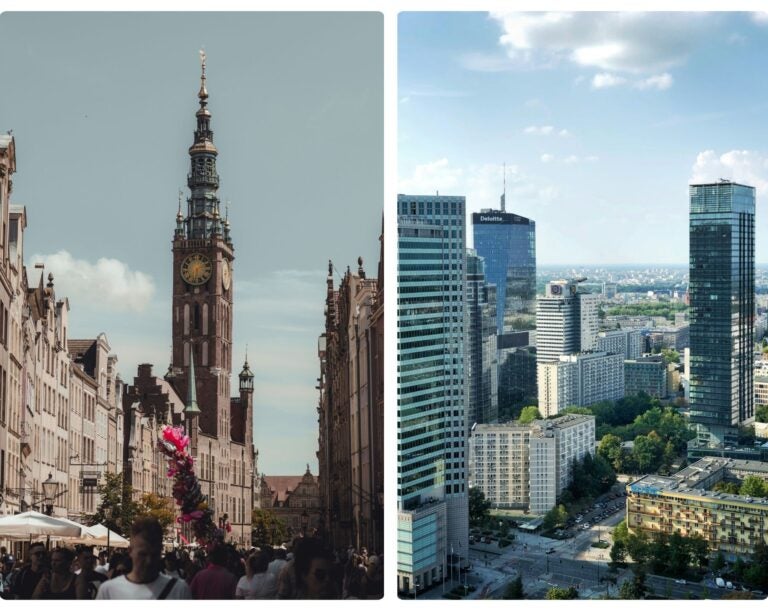
Types of jobs in Poland for foreigners
Poland offers a wide range of job opportunities for foreigners, especially in sectors that need international talent or face a shortage of local professionals. The main types of positions include:
- Information technology (IT): Software developers, cybersecurity specialists, data engineers, and artificial intelligence experts.
- Shared service centers (BPO/SSC): Customer service, technical support, and process management for international companies operating from Poland.
- Education and language teaching: Teachers of English and other foreign languages, both in schools and private academies.
- Construction and manufacturing: Skilled workers, engineers, and technicians in production lines.
- Logistics and transportation: Drivers, warehouse staff, supply chain managers, and export specialists.
- Hospitality and tourism: Jobs in hotels, restaurants, and tourist services, especially in cities with high visitor traffic, such as Warsaw.
- Health and care: Nursing, physical therapy, and social work, in response to the growing demand for healthcare personnel.
The jobs in Poland with the highest demand for foreigners
While there are many sectors open to international professionals, some stand out for their high demand for foreign talent in recent years:
- Technology and IT: Poland is a growing technology hub constantly on the lookout for developers, IT specialists, and data analysts.
- Multilingual customer service: International companies need people who speak Spanish, English, French, or German to serve their global customers.
- Language teaching: English teaching remains one of the most accessible jobs for those who do not speak Polish.
- Construction and industry: Modernization of infrastructure and factories keeps demand for skilled labor high.
- Logistics and transportation: Poland’s central location in Europe makes it a key hub for exports, creating more job opportunities in this sector.
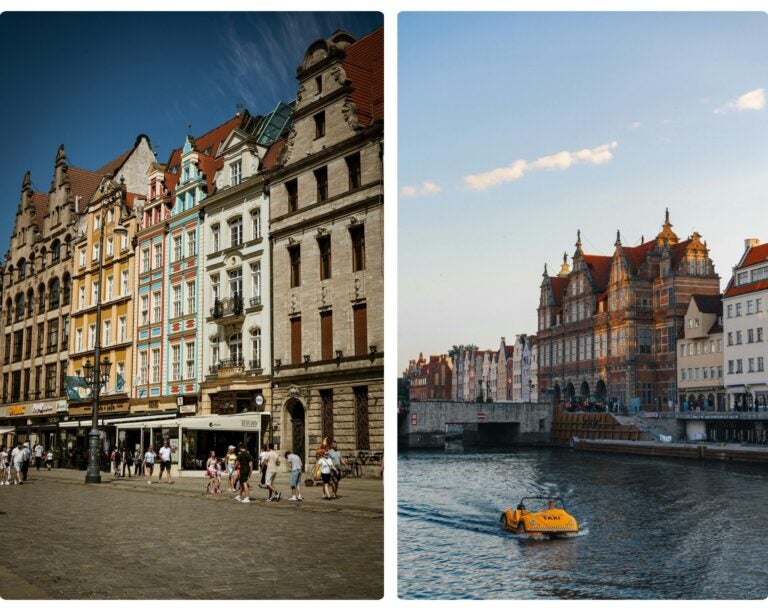
Salaries and cost of living in Poland
One of the most important things to consider before moving abroad for work is understanding potential earnings and the cost of living. In Poland, the minimum wage in 2025 is around $1,050. However, salaries can vary significantly depending on the sector and level of experience:
- IT and technology professionals: Between $2,100-3,500 per month.
- Customer service and shared service centers: Between $1,400-2,100 per month.
- Foreign language teaching: Between $1,150-1,800 per month.
- Industry and construction: Between $1,300-2,000 per month.
In terms of cost of living, Poland is more affordable than other European destinations. Here are some monthly averages in cities such as Warsaw and Krakow:
- One-bedroom apartment rent: $580–900.
- Food expenses: $230–350.
- Public transportation: $30–45.
- Entertainment and leisure: $115–230.
In general, a person can live in Poland on a budget of $950 to $1,270 per month, though this depends on lifestyle and the city you choose. This means that those in skilled positions can save a significant portion of their salary.
To stay connected from day one and make your move easier, you can choose Holafly’s monthly plans with unlimited data, perfect for your first months in Poland. They let you search for jobs, communicate with your employer, and get your new life organized without worrying about roaming or needing a physical SIM.
Important: If you are a frequent traveler and want to stay connected without worrying about expensive roaming or looking for a new SIM at every destination, Holafly’s subscription plans are for you. With a single eSIM, enjoy internet in more than 170 countries for a fixed price and no surprises on your bill. Travel without limits and connect easily and securely! 🚀🌍

Where can you find job opportunities in Poland?
Poland offers a variety of options for job seekers, both online and in person. Some of the most recommended are:
- Online job platforms: Job portals like Pracuj.pl, Indeed, Glassdoor, and LinkedIn host a large share of the country’s available openings, especially in sectors such as IT, services, and education.
- Employment agencies: There are local and international agencies that help foreigners find jobs in specific fields such as manufacturing, logistics, and customer service.
- Job fairs and networking events: Many universities and business centers host career fairs where you can meet international companies operating in Poland.
- Government job offers: Occasionally, the Polish government announces openings for temporary positions in agriculture, construction, or essential services.
- International communities: Expat groups on social media can also be a great way to discover job opportunities and share experiences.
Frequently asked questions about working in Poland
It really depends on the field. For international companies, good English is often sufficient, but in local customer service, construction, or other service jobs, some knowledge of Polish may be required.
Salaries vary depending on the sector, but on average they range from $1,165 to $3,000 per month. IT and finance professionals tend to earn the highest incomes.
A person can live on around $950 to $1,270 a month, covering housing, transportation, and food. This makes Poland a more affordable destination compared with Germany or France.
If you are an EU citizen, no additional permits are needed. For non-EU citizens, a work visa is required, and in most cases, a job offer beforehand is necessary.
The main opportunities are in Warsaw, Krakow, Wroclaw, and Gdansk, cities with a high level of international companies.
Technology, multilingual customer service, language teaching, logistics, and construction are the sectors that hire the most foreign workers.
A practical option is to get a Holafly monthly plan with unlimited data, which will let you search for jobs, use maps, and stay in touch with your family from day one.





 Language
Language 


















 No results found
No results found



